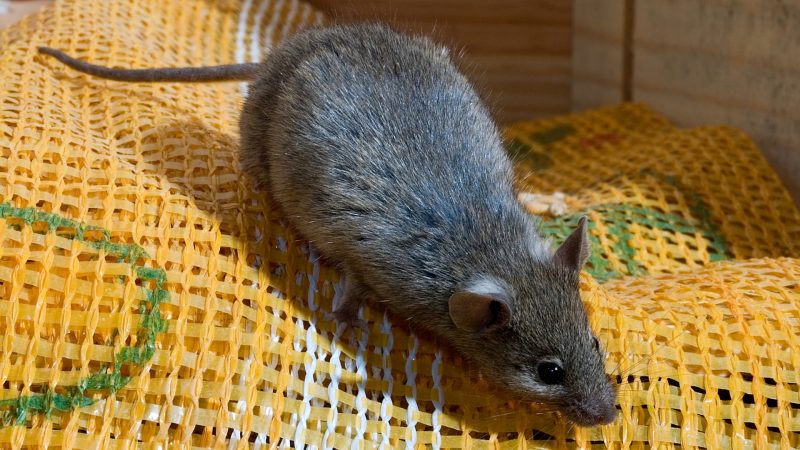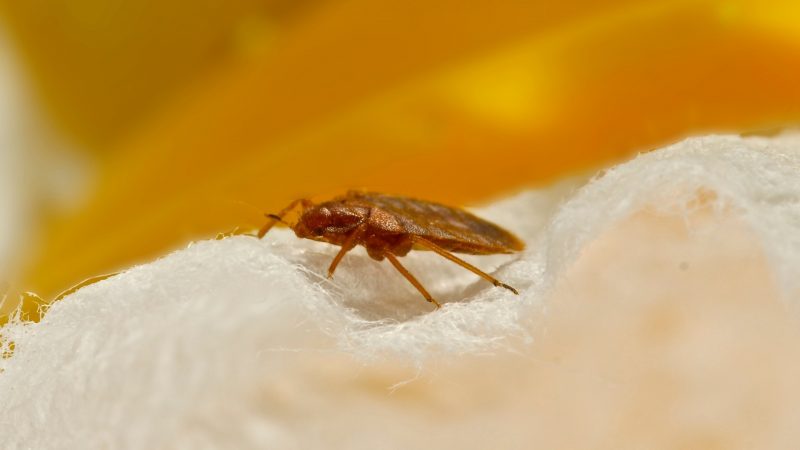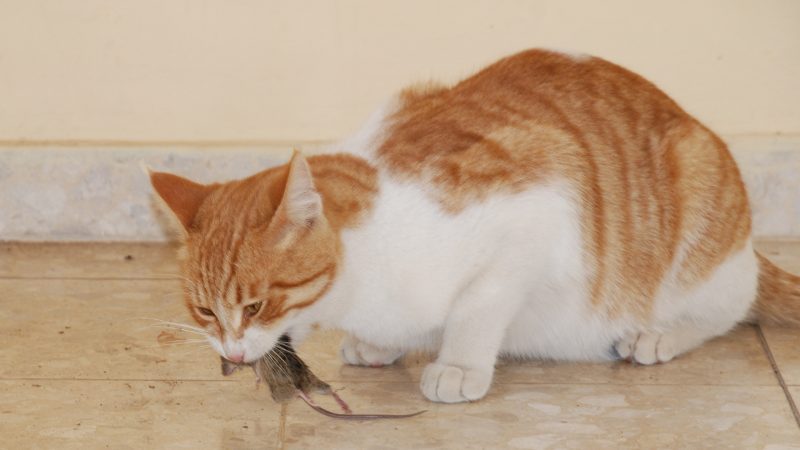During bedtime, you are rewarding yourself with a peaceful and uninterrupted sleep for at least eight hours. However, when you close your eyes to sleep or doze, you may be startled awake by squeaky noises and shrills echoing within your room. At that point, you understood that the mouse, the rodent villain, was up to his unpleasant routines again.
Can’t sleep because of the noisy mouse in your room? Here are the effective methods for getting rid of them in your room:
- Know how the mouse was able to enter your room.
- Look for mouse nests inside your room and remove them.
- Transform your room into a place not suitable for a mouse infestation.
- Institute traps around your room to get rid of the remaining mice.
- Use repellents in eliminating their presence inside your room.
In this article, we’ll explain the information about mice, including their movements and habits, as well as the effective ways of controlling and preventing their infestation inside your room.
What Do Mice Sound Like?
The sounds that mice produce are a prominent warning to be on the lookout for if you think your home has a mouse problem. These pests commonly make the following three noises:
- Squeaking
- Scratching
- Gnawing
- Scurrying
If you hear faint squeaks, scurrying, and/or scratching coming from behind the walls of your room, you probably need to begin researching mouse control options.
Mouse Sounds and Their Meanings
- Squeaking – Mice chirp and squeak as their primary means of intercommunication. They primarily communicate through ultrasonic vocalizations, which humans cannot hear without the use of specialized equipment.
- Scratching – The mice are either burrowing, crawling, or climbing. It typically results from their claws grabbing a surface.
- Gnawing – Mice must chew on various items to maintain their teeth short as they are always growing. They frequently chew on a variety of objects, making chewing noises simple to hear from them.
- Scurrying – You may hear them scurrying around as they try to travel from one location to another.
What to Do if You Found a Mouse in Your Room?

If you found a mouse in your room, it is better to assess your whole place for the presence of mouse attractants or mouse nests. Once you spot them, remove them safely to decrease the chances of infestation and damage.
Related: Common Types of Mice You’ll Find in Your House | Identification, Habitat, and Behavior
Can Mice Climb Into Your Bed?
Mice can climb into your bed. They are considered good climbers. So, once they see attractants on your bed, they will not hesitate to leap toward it.
It is said that a mouse can jump at least one foot into the air, so climbing on top of the bed would not be a difficult task for them. Also, the presence of bed frames and blankets reaching the floor provides convenient access for mice to reach the upper part of your beds.
Thus, it is always beneficial to clean and spare these areas from food crumbs.
Can Mice Be In Your Mattress?
Mice are unlikely to reside on your mattress because they usually avoid people. However, they will still visit these places once they see attractants such as food remnants. Thus, it would be helpful to put mattress covers on your beds that can potentially repel mouse creatures.
Do Mice Like Messy Rooms?
A disorganized environment is a great temptation for mice. Thus, they thrive and prefer to reside in messy rooms.
They love clutter and warm environments so much that if these conditions are found inside your bedroom, they will not hesitate to make a nest or habitat out of it.
Will Mice Crawl on You While Sleeping?
There is a possibility that a mouse would crawl on you while sleeping. If you see mice inside your room, there is a high chance that they have been passing through you in the fastest way possible while you are dozing asleep or taking a nap.
Also, there is a tendency that these pests will try to bite you once you go into slumber. Thus, it is not generally safe for them to lurk around your room.
Can Mice Carry Bed Bugs?

Bed bugs may cling to mice, but not for a long time. Since mice move in a fast and swift manner, the bed bugs would fall off easily once they cling to these animals. Also, these bugs would just leave the mice once they are done sucking their blood.
Related: Bed Bugs on Animals: Can Animals Carry Bed Bugs?
Are Mice Scared of People?
Mice are scared of potential predators like humans, cats, dogs, and snakes. They view people as a potential threat to life and liberty, so they always avoid them. This is the reason why they constantly run and veer away from humans whenever they see the latter. They are more afraid of people than the people are of them.
What Time Are Mice Most Active?
Mice are nocturnal beings, so they are typically active during the evenings. They usually hide when the sun is up as they abhor bright lights.
However, they may go out during the day if they search for food or when their nest is bothered. Also, the presence of mice during this time may signify mice infestation.
Will Mice Leave if They Smell a Cat?

Mice usually leave when they smell a cat. Cats’ saliva contains a chemical that, when detected by a mouse, causes fear and panic. This will enable them to flee or hide in secret spots whenever they encounter a cat along the way.
It is a fact that most people fear mice but bear in mind that they are more afraid of humans. Therefore, it will be difficult to spot them inside our houses since they would do their best to hide from potential predators. So, better keep your eye keen if you want to capture and get rid of them.
Ways to Keep Mice Away From Your Bed

Natural mouse repellents are the safest and most ideal way of keeping mice away from your bed. It is not only effective but very safe to use as it does not contain harmful chemicals and substances that may impair and injure bed owners, especially kids. Good examples include peppermint oil, cedar shavings, and cloves.
What to Do if You Found Mouse Droppings in Your Bed?
If you are clueless about what to do if you found mouse droppings in your bed, just follow these helpful techniques:
Step 1: Use protective gloves in handling mouse droppings as they may be infected with various bacteria and viruses.
Step 2: Apply bleach or disinfectant on the affected surfaces and sheets. This is to deter the spread of harmful microorganisms.
Step 3: Open the doors and windows. This is to promote proper ventilation as infectious particles may be trapped in the air.
Step 4: Wash the affected blankets and beddings thoroughly. Allow them to dry under the heat of the sun.
Step 5: Dispose of the mouse droppings carefully. Put them in a plastic bag and placing it directly in the appropriate garbage bin.
Step 6: You should also dispose and sanitize the materials you used in removing mouse feces. They may be contaminated with disease-causing microorganisms.
Step 7: Clean yourself afterward by taking a bath or washing your hands vigorously with soap and water and putting your clothes directly in the laundry area.
Related: How to Safely Clean Up and Dispose of Mice and Rat Droppings? | Tips & Guide
How Do You Mouse-Proof Your Bed?
The following are the effective ways of making your bed mouse-proof:
- Avoid eating at the top of your bed to prevent food from falling into it.
- To keep mice away from your bed, apply natural mouse repellents around it.
- Cat is an excellent mouse deterrent. So, if you have one, letting them stay inside your room can be helpful.
- Place mouse traps on bed floors to prevent them from going at the mattress top.
- Maintain the cleanliness of your bed as mice are attracted to clutter.
What Can You Do if You Have Mice Living on Your Couch?
If you have mice living on your couch, it is recommended to practice the following steps:
Step 1: Inspect for the presence of mouse droppings and nests underneath your couch and its surrounding areas. This is to determine if a mice infestation has already occurred.
Step 2: Clean and sanitize the surfaces of your couch to get rid of clutter. Mice love to lurk around messy environments.
Step 3: Apply mouse repellents in areas close to your couch.
Step 4: Place mouse traps in nearby locations. You can also put traps nearby their hiding place.
Step 5: If the mice infestation is already perilous to your health and safety, consider buying a new couch or seek the help of professional pest controllers.
Effective Methods for Getting Rid of Mouse in Your Room
1. Know how the mouse was able to enter your room.
Your room might have cracks and openings where mice could just instantly barge and enter. They have flexible body structures, so it is easy for them to fit in even the tiniest holes. Thus, if you spot crevices and fissures around your room, take time to repair and close it.
2. Look for mouse nests inside your room and remove them.
If you see mice in your room, chances are they have already made nests inside it. Thus, it is recommended to inspect the places inside your room where they may stay, such as areas behind cabinets or spaces under beds.
When you remove it to thwart their chances of returning, wear protective gloves as you may come in contact with infectious bacteria and viruses.
3. Transform your room into a place not suitable for a mouse infestation.
These animals might be entering your room to infest things that attract and entice them. In numerous cases, mice are lured by the following items and conditions:
- Food crumbs/remnants
- Pet Food
- Warm weather
- Clutter
- Nesting materials like cotton, feathers, old papers
If these things are present inside your room, you might want to redo the setting of your nook and organize it in such a way that these mice would no longer want to live in it.
4. Institute traps around your room to get rid of the remaining mice.
If you sense that mouse creatures are still lingering inside your room, it would be helpful to institute traps and baits in places where they would usually stay. These traps may utilize glue and sticky pads , electronic and power sources , or even simple DIY materials that can be very helpful in capturing and seizing these animals.
- READY TO USE: Rat, Mouse and Snake glue traps are pre-scented and...
- YEAR-ROUND PROTECTION: The disposable large mouse pad is sticky,...
- HOME & FAMILY SAFE: Designed to help you keep your family...
- TOTAL COVERAGE: The mouse traps indoor for home can be used in...
- INTELLIGENT PEST MANAGEMENT: At our core, we are dedicated pest...
5. Use repellents in eliminating their presence inside your room.
This can be done by applying and spraying repellents in areas where they spend the majority of their time. However, since certain pesticides include harmful chemicals, it may be advisable to use sprays containing natural and organic ingredients like pepper, cloves, camphor, and peppermint oil.
- Crafted using all-natural peppermint oil, this product is safe to...
- Safely spray Rodent Sheriff in your home or garden, as it...
- This handcrafted solution has been proven effective in repelling...
- Each package includes two 8-ounce bottles of this powerful,...
- Protect your spaces prone to pests by utilizing this product. It...
Related: Mice Control: How To Get Rid of Mice?
List of Sources
Mice. National Pesticide Information Center.
Mouse Control. (2012). New York State – Department of Health.
House Mouse Prevention and Control. Illinois Department of Public Health.
- How to Get Rid of Copperheads | Practical Guide - August 27, 2023
- How to Get Rid of Corn Snakes | What Makes Them Aggressive? - August 27, 2023
- How to Get Rid of Alligators | Safety Measures and Removal Methods - July 16, 2023


